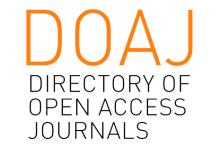Resource information
This paper consists of a review of existing literature relating to Incorporated Land Groups in Papua New Guinea (PNG), followed by a case study of two urban incorporated land groups (ILGs) in the city of Lae. The paper is an attempt at assessing the sustainability of ILGs in the country. The challenges facing the ILGs have heightened public fears that the land groups may not be sustainable. Based on the argument in previous studies that the ILGs are not sustainable, the paper used primary data from two separate questionnaire surveys of randomly selected ILG landowners (including legal settlers) and ILG stakeholders to investigate the problem. The combined sample size of 129 respondents (32.7%) was representative of the total ILG population, while a total of 25 indicators were used to test the respondents’ perceptions regarding ILG sustainability. Findings reveal that only one of the indicators received the positive support of the stakeholders, while no indicator was supported by the landowners. This suggests that the ILGs in PNG are not sustainable legal entities. This dilemma is a consequence of the challenges facing the ILGs, including the issues of corruption in the Lands Department, illiteracy among landowners, poor publicity given to ILGs’ functions, and the dysfunctional ILG legal framework.



